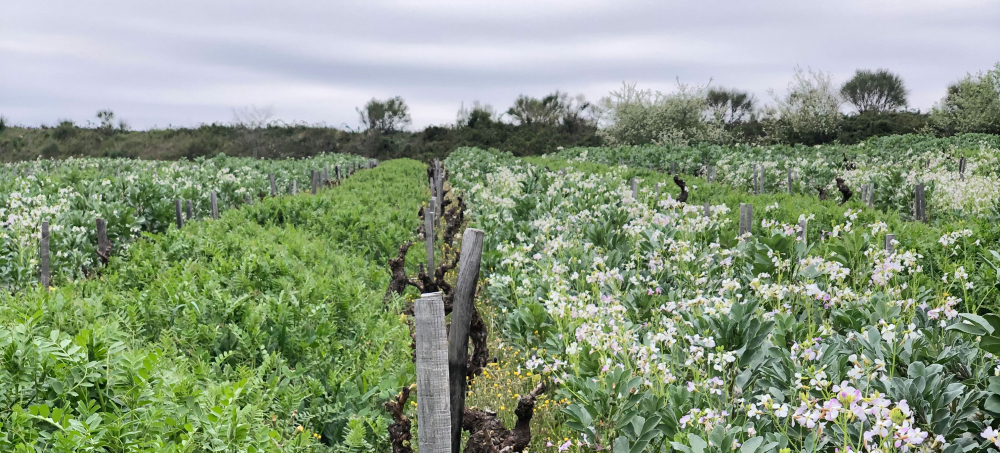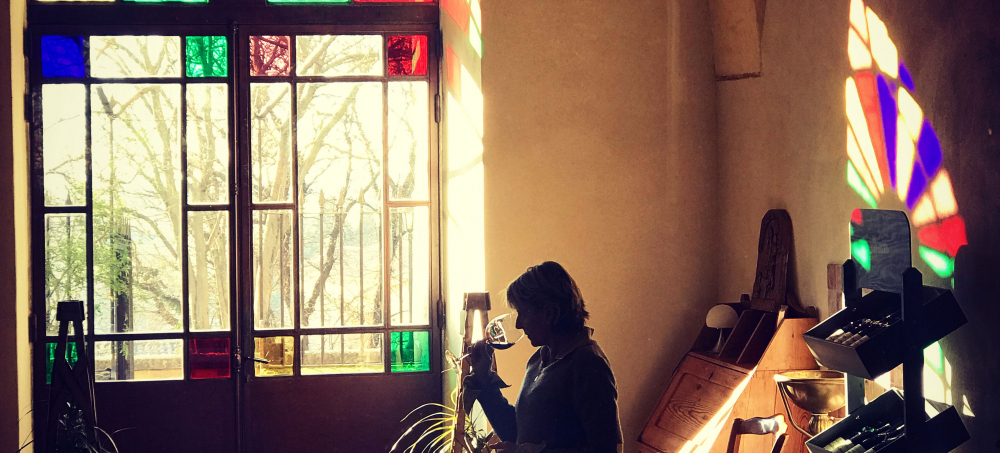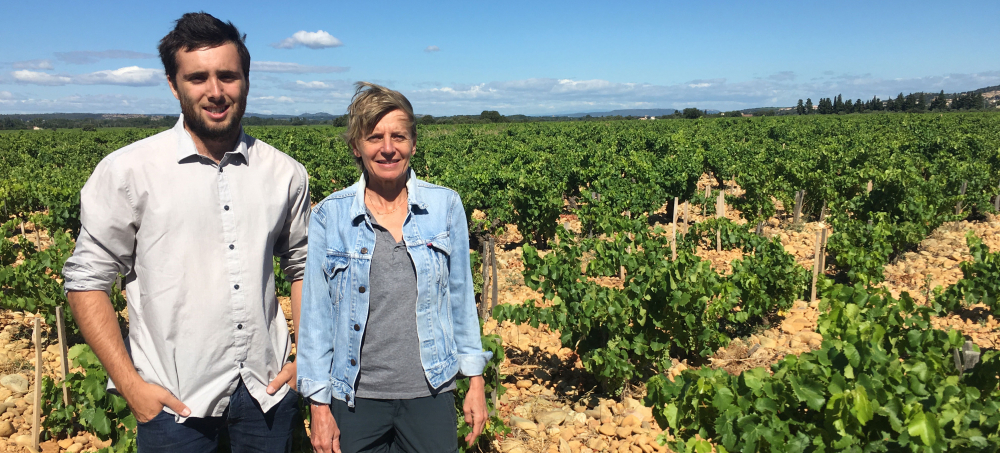Vignobles Mayard, nestled in the heart of the prestigious village of Châteauneuf-du-Pape, is a family run estate with a long history in the appellation. At the end of the 19th century, when phylloxera had all but destroyed his vineyards, Gratien Mayard contemplated moving to the United States and starting over. But his devotion eventually won out and instead he chose to stay and re-plant his vineyards, vine by vine.
Today the estate is run by fifth generation winemaker Françoise Roumieux along with her sister Béatrice and brother Didier. They have preserved the traditions started by their family and continue to make improvements by modernizing the winery and committing to environmentally friendly agriculture. The property is comprised of 43 hectares and roughly 40 parcels spread across highly diverse terroirs, some of them planted over a century ago.
The family began organic conversion in 2017 and obtained certification in 2020. When walking through the vineyards, the famed carpet of galets roulés (rolling rocks) - the remnants of Alpine glaciers that have been rounded over millennia by the Rhône river - are underfoot but no longer visible due to the incredible vegetation growing in and around the vines. In response to rising temperatures and the regular threat of draught, Francois Mayard made the bold decision to cease tillage of her vineyards and increase both wild and seeded plant-life growing among the vines. This embrace of regenerative agriculture has improved water retention and lowered the temperatures in the soils, thus slowing the ripening process in even the highest of temperatures. As Françoise explains, “It is necessary to respect the soil and the people who work in the vines, as it is the future for everyone.“
Additionally, moderate rainfall and the cooling influence of the mistral wind combine to temper the heat of Southern Rhône, allowing the expression of this terroir to come into focus. The diversity of subsoils in the various growing zones lends a different element to the wine and contributes to a complex patchwork that is the hallmark of Chateauneuf-du-Pape.
Most of the vineyards at Mayard can be found in the south of the appellation and are composed sand, limestone and pebbles. Clos du Calvaire is their entry-level Châteauneuf-du-Pape and is a blend of these various plots. The family also owns 8 hectares in the 300 hectare lieu-dit of La Crau in the northeast, where they have 100 year old Grenache vines planted on clay soils. These old vines are very low yielding and the clay helps them retain moisture, a great help in the hottest years. One of these parcels was originally owned by Françoise’s paternal grandmother, Marie Louis Mayard, who worked at the domaine alongside her husband at a time when women were still in the background. A quick glance through a book of old correspondence and invoices with clients from around the world shows the level of her involvement as far back as the 1920s. In honor of his mother, Françoise’s father called this specific parcel La Crau de Ma Mere, a name that Françoise and her siblings in turn labeled their top cuvee.
The winemaking at Mayard emphasizes gentle handling at every stage. All grapes are picked by hand into small crates to avoid the risk of crushing and oxidation. After destemming, the grapes are gravity-fed into epoxy-lined concrete vats and fermentation begins naturally with native yeasts. To extract color and tannins, they employ gentle delestage once per day during fermentation. Clos du Calvaire is aged in concrete while La Crau de Ma Mere spends 18 months in neutral foudres.
With a dynamic history and an eye toward the future, the Roumieux trio is putting out naturally farmed wines with finesse, class and a freshness and lift that elude so many of today’s Châteuneuf-du-Pape.



